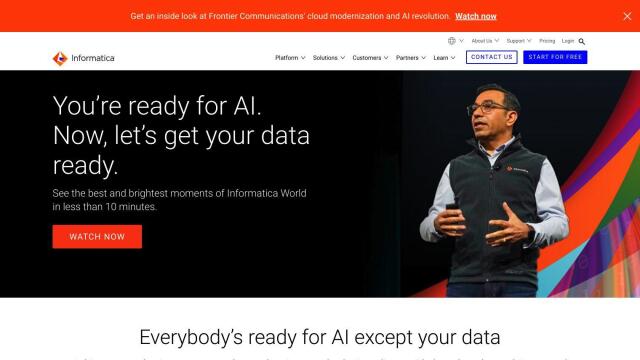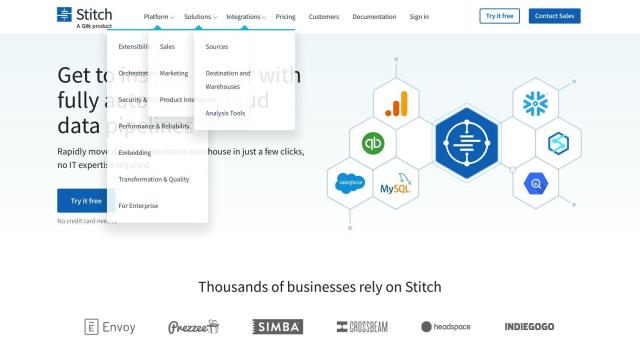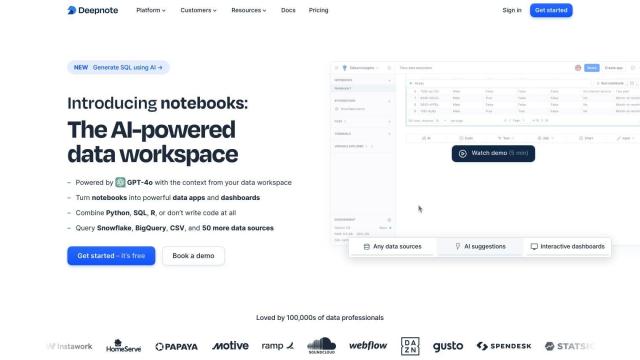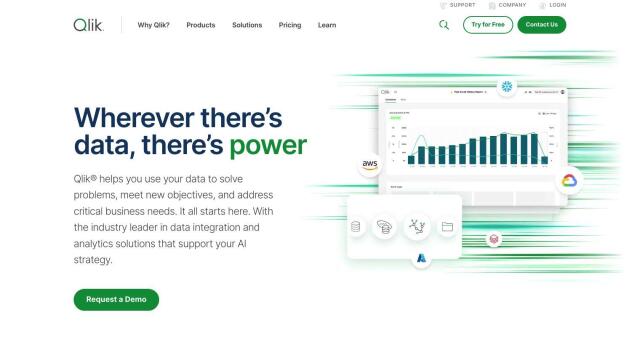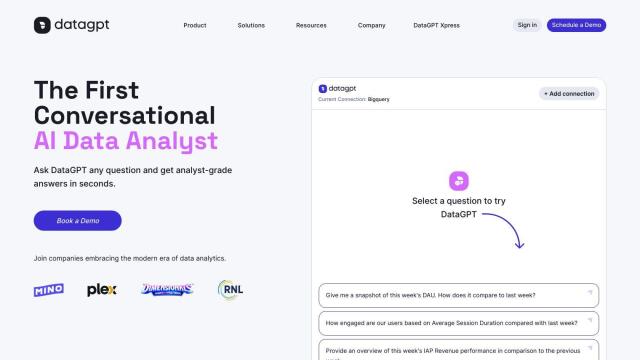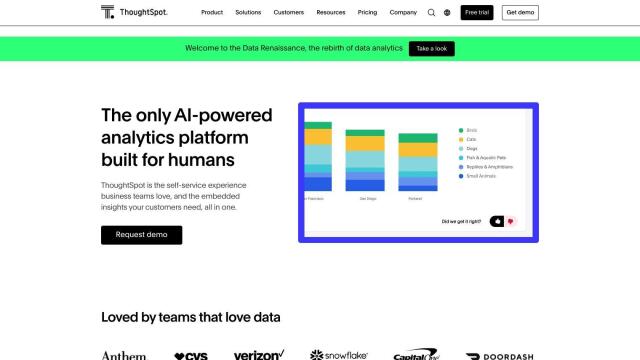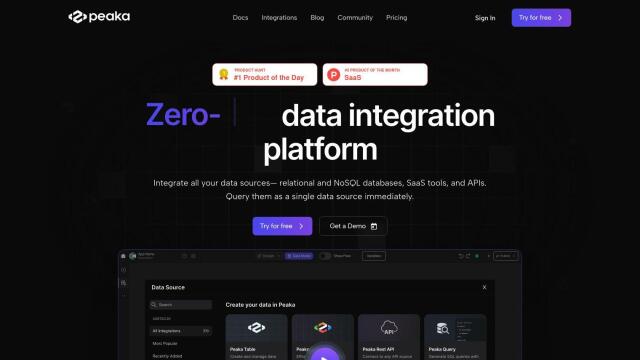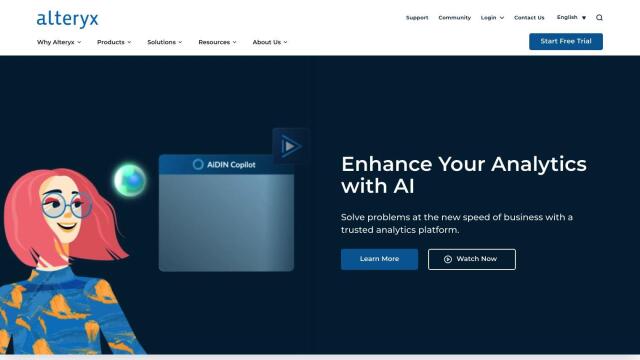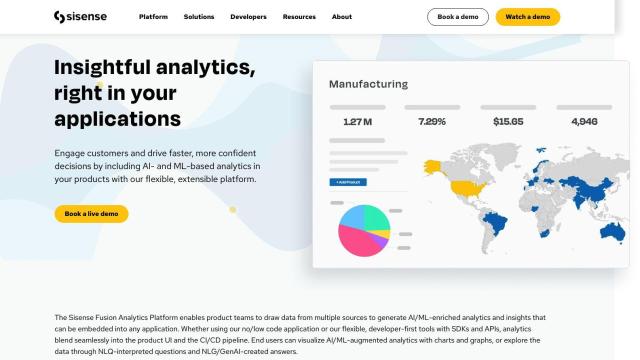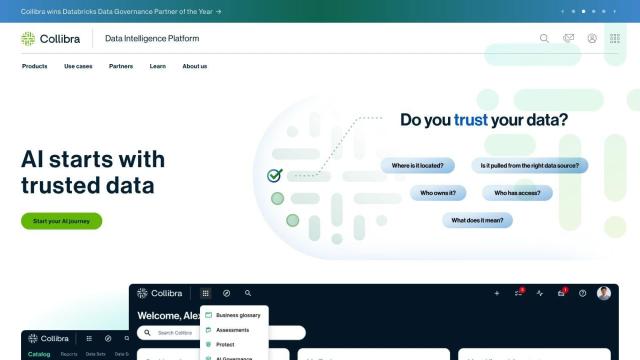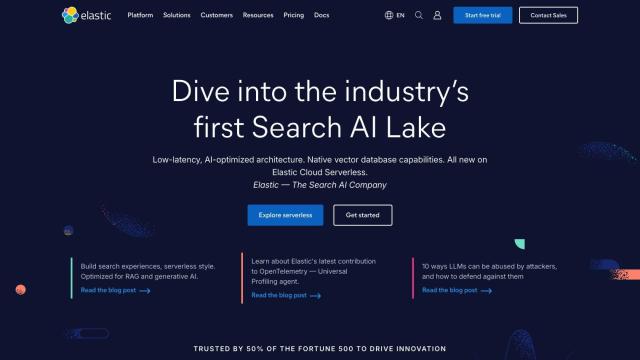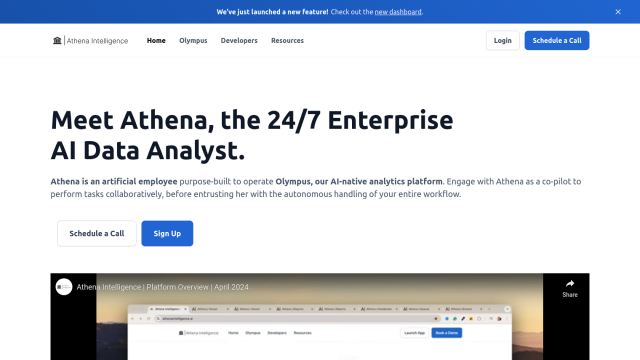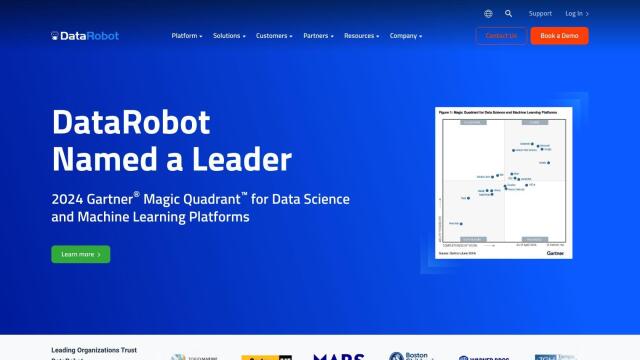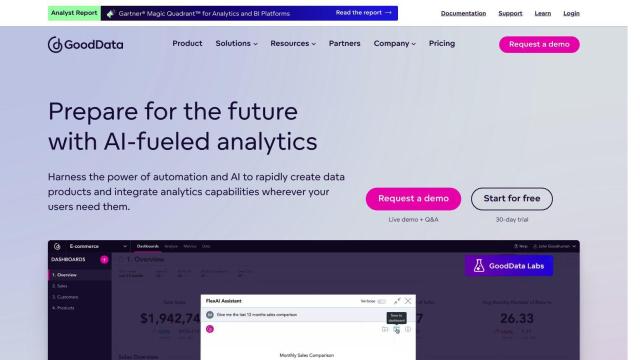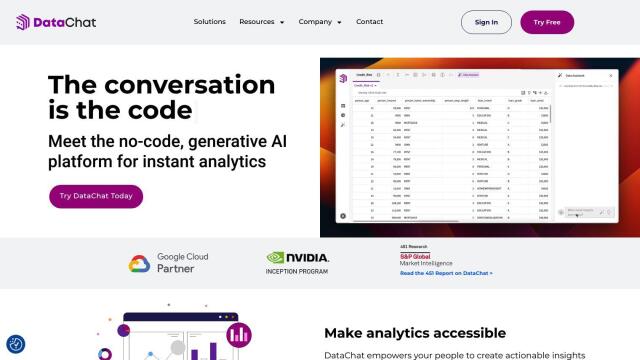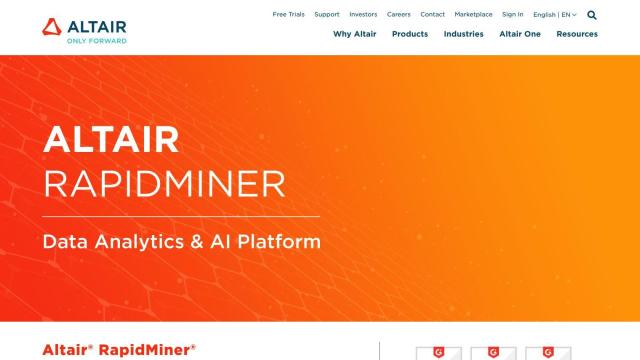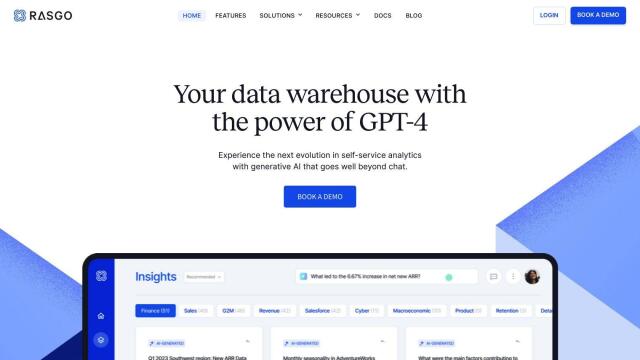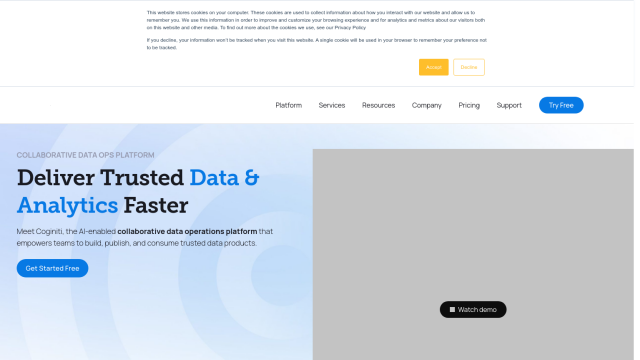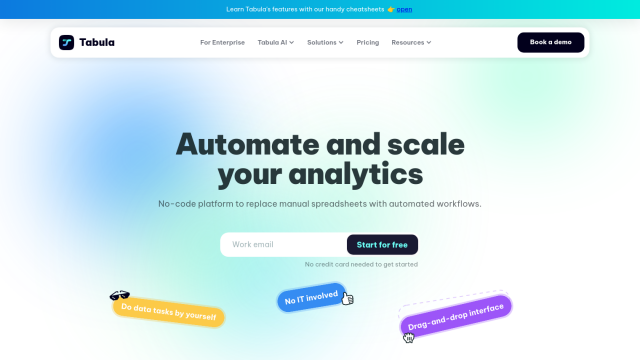Question: I need a solution that provides access to up-to-date information from various data sources, can you suggest one?

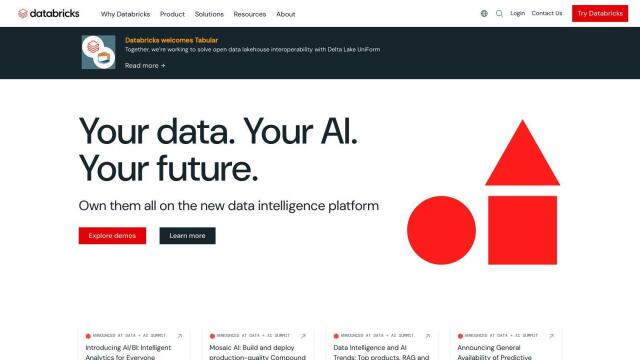
Databricks
For a solution that offers access to real-time information from multiple data sources, Databricks is a great option. The company marries generative AI with data analytics and governance so customers can build, deploy and run AI applications directly against their data. With ETL, data ingestion, business intelligence and AI tools, Databricks can integrate with a broad range of data sources and is built on a lakehouse architecture that makes it a good foundation for data management and analysis.

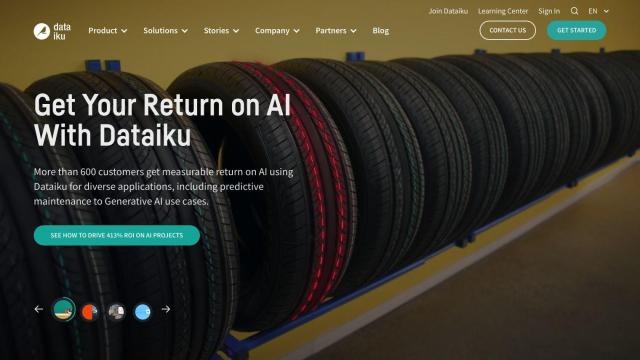
Dataiku
Another powerful option is Dataiku, which formalizes data use for superior business outcomes by making AI accessible for everyday use. It includes tools for data preparation, machine learning, MLOps, collaboration and governance. Dataiku is designed to support multiple teams, including AI and Machine Learning, Data Analytics and Enterprise AI, and has industry-specific solutions. It's a Leader in the Gartner Magic Quadrant for Data Science & ML Platforms and offers a free version for up to 3 users.
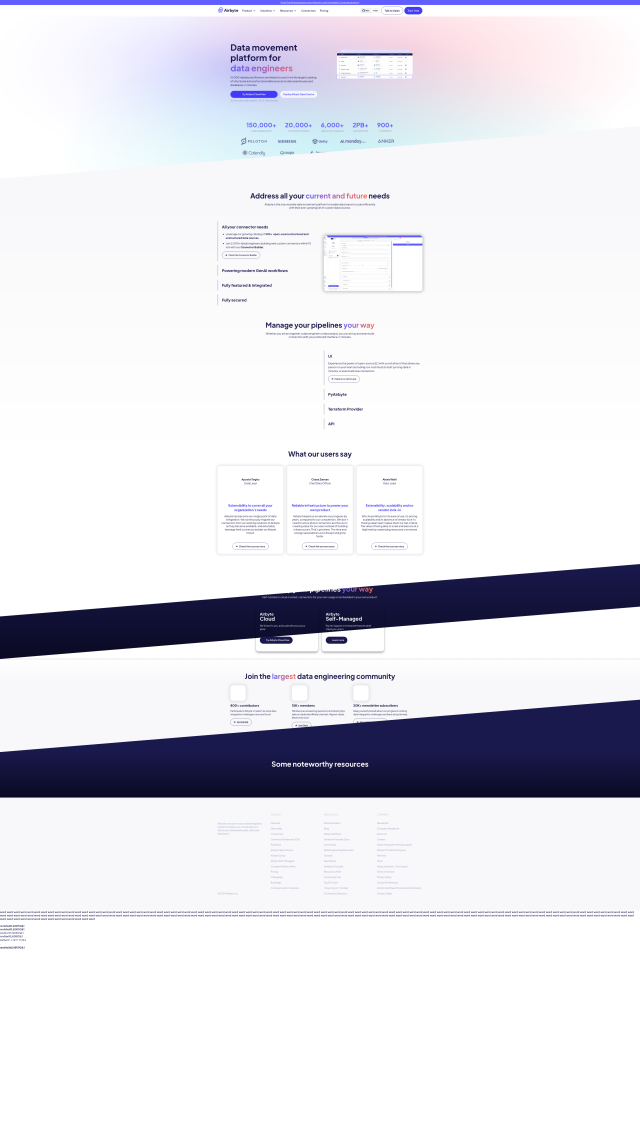
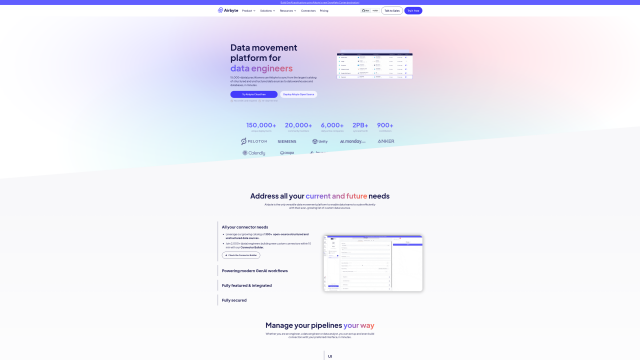
Airbyte
Airbyte is an open-source data integration platform that moves data from more than 300 sources to many destinations. It's geared for data engineers, AI engineers, analytics engineers and data analysts, with features like custom connectors, automated schema evolution and strong security. Its flexibility in deployment and user-friendly UI make it suitable for large-scale and small-scale data integration projects.

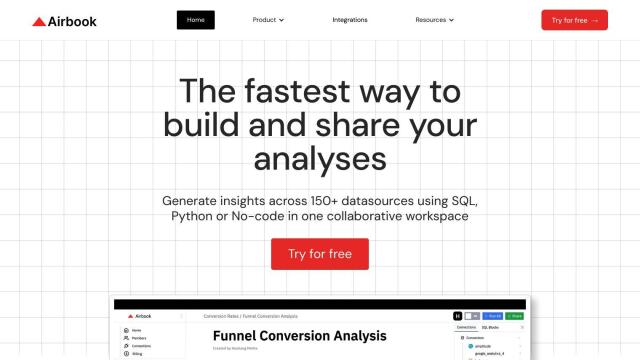
Airbook
For data workspaces, Airbook connects to more than 150 data sources with native connectors so teams can query data with SQL, Python or no-code interfaces. Features include collaborative workspaces, visualization, query saving and reuse, and AI-generated, corrected and explained SQL code (coming soon). The platform supports a wide range of integrations and is suitable for making more data-driven decisions across business functions.

